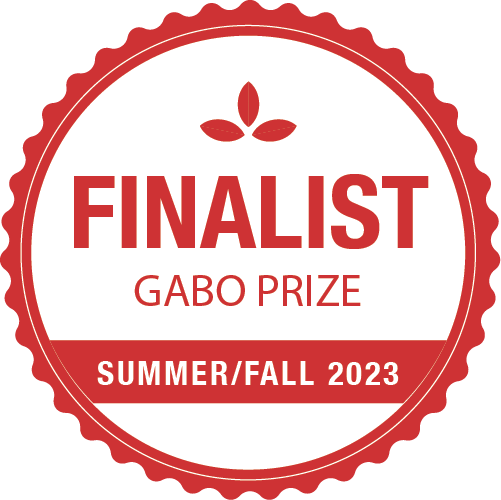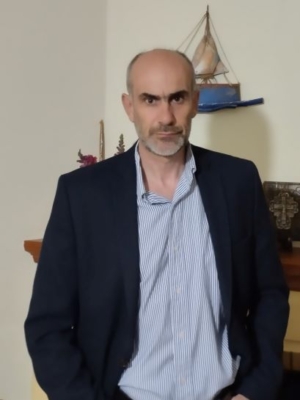Vows
At night, vows become ghosts.
Like in the past, they wander
the same streets and neighborhoods.
Leaves stir in trees
but the wind is still.
They enter the same rooms
curtains flutter
but the window isn’t open.
They lie in the same bed with you while you sleep
the mattress creaks
but you haven’t moved.
They take the sheet that covers you
it swirls into figures and shapes all night.
By morning they’re slumped on the floor
soulless, formless, dead.
It is then that you awaken
with a chill going through your body
and a kiss staining your forehead
like an everlasting question mark.
Όρκοι
Τα βράδια οι όρκοι γίνονται φαντάσματα.
Βγαίνουν όπως παλιά, στους ίδιους δρόμους
και στις ίδιες γειτονιές.
Κάνουν τα φύλλα των δέντρων να σαλεύουν
κι ας μην ανασαίνει αέρας.
Μπαίνουν στα ίδια δωμάτια
και οι κουρτίνες κουνιούνται
χωρίς παράθυρο ανοιχτό.
Ξαπλώνουν στο ίδιο κρεβάτι, ενώ εσύ κοιμάσαι,
κι οι τάβλες τρίζουν
κι ας μην άλλαξες πλευρό.
Παίρνουν το σεντόνι που σκεπάζεσαι
φτιάχνουν μορφές και σχήματα όλη νύχτα
και το πρωί πέφτουν στο πάτωμα
άψυχα, άμορφα, νεκρά.
Τότε εσύ ξυπνάς
με μια ανατριχίλα στο κορμί σου
κι ένα σημάδι από φιλί στο μέτωπό σου
σαν πελώριο ερωτηματικό.
Translator’s Statement
Greece experienced a decade-long financial crisis from 2008 to 2018. It was a time of great social, political, and economic upheaval that tested our stability on every level.
Plagued with harsh austerity measures and an uncertain future, many of us turned inward, re-examining ourselves and our lives. We found new ways to cope, to live, to work, to survive. It was also a time that sparked great creativity. Greek artists, writers, and poets began to explore new viewpoints and themes in their work, reflecting social changes.
Much of Argyris Stavropoulos’ work was written during this decade of crisis and touches upon themes of time, loss, change, and reflecting on the past with a greater sense of self-awareness. He uses simple language that creates a tone of intimacy with the reader. His confessional style speaks to personal truths that resonate. Many of his poems reveal a deeper backstory; I can imagine these poems unfurling into longer narrations, short stories, or novels.
Stavropoulos lives in Sparta, but has roots in a nearby village on the slopes of Mt. Parnonas, where he spends a lot of time writing. Much of the symbolic imagery in his work reflects this influence of the natural world.
Translation is a close reading of the world the writer has created. I aim to obtain a clear vision of each piece, each line, every word—in order to convey the writer’s tone, voice, and atmosphere in my translation. Greek is a language rich in meaning. I examine word choice and the intention behind each word. Why did the poet choose this word, when another conveys a similar meaning? There are nuances of meaning, varying shades of connotation, context, musicality, imagery of a specific word over another. This is what I take into consideration when I translate.
It is a pleasure to share Vows for the first time in English translation. I believe Stavropoulos’ work is deserving of a wider audience and hope my translation serves to amplify contemporary voices in Greek literature.
Argyris Stavropoulos, a poet from Sparta, Greece has published three collections of poetry: Συναντήσεις (Encounters – haiku LogoTypos 2010); Αυτοεξόριστος εντός μου (Self-exiled within 24Grammata 2018), awarded the Polydouri Poetry Prize; Οι τύψεις της θάλασσας (The sea’s remorse 24Grammata 2020). A new collection, Καλοκαιρινό παλτό (Summer coat), forthcoming in 2024, has been awarded the Techni Kilkis Poetry Prize.
Gigi Papoulias’ translations and fiction have been published in Mayday Magazine, Toasted Cheese, Dream Journal and others. She was a selected participant at Princeton University’s Literary Translation seminar, with a translation from the work of Greek author Marios Hakkas. A graduate of Boston College, her academic work focused on Modern Greek Studies. As a grant recipient at the University of Athens, she completed advanced coursework in Greek Literature. She lives in Athens and has roots from the same Spartan village as the poet.







